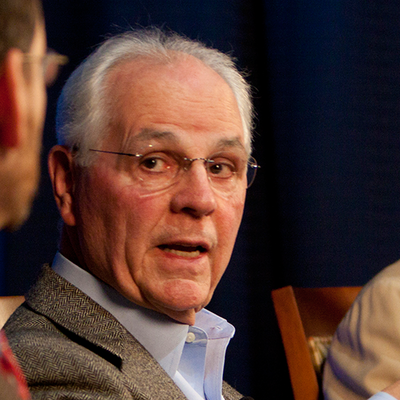Former Sacramento Mayor and lawmaker Phil Isenberg delighted in birding, solving complex problems
Sacramento (Oct. 26, 2023) Phillip L. Isenberg, an inventive and unconventional Sacramento political leader, died Thursday at age 84 after a short illness. He is survived by his wife, Marilyn Araki Isenberg.
He was known for his delight in forging implausible, successful coalitions of people and interests to solve difficult governmental problems, as a generous patron of the arts and music, and for his passions for fishing and birding.
During his more than 50 years of public service, Isenberg:
Represented his neighborhood on the Sacramento City Council
Served as mayor of Sacramento for five years
Represented Sacramento and the Delta in the California State Assembly for 14 years
Was a professor of government at Sacramento State University, McGeorge School of Public Policy, and the UC Berkeley Goldman School of Public Policy
Served on the Board of Directors of the California State Library Foundation, WEAVE (Women Escaping a Violent Environment), and the Public Policy Institute of California, and he was one of the founding board members of the Verge Center for the Arts in 2010
Chaired the Marine Life Protection Blue Ribbon Task Force, the Delta Vision Blue Ribbon Task Force, and the Delta Stewardship Council
As mayor of Sacramento, Isenberg was a champion of art in public places, and he established the Sacramento Office of Arts and Culture, which continues to fund artists and creators. He and Marilyn were avid collectors of art and patrons of the Sacramento music scene.
While in the Assembly, he became an expert on the state budget process. California governors, both Republican and Democrat, relied on his ability to weave through the various interests to forge a compromise during protracted budget standoffs.
His devotion to protecting the Sacramento-San Joaquin Delta came from his enthusiasm for fishing. An avid birder, he declared the sandhill crane as the official bird of his Assembly district and finagled funding for the creation of a Sandhill Crane preserve near Lodi, later expanded and named the Phil and Marilyn Isenberg Sandhill Crane Preserve.
While he was chairman of the state Assembly Water Parks and Wildlife Committee, he forged a coalition of legislators from both parties and from north and south to find $50 million to find alternative water sources so that the Los Angeles Department of Water and Power could reduce its diversions from Mono Lake.
As a member of the Assembly Health Committee, he figured out a way for people with previous medical conditions to get health insurance.
As chairman of the Assembly Judiciary Committee, he unified the California court system, combining the old judicial, municipal, and superior courts into one, and authored the Gambling Control Act, which imposed statewide controls on the operations of cardrooms. He put his expertise in California gambling law to use later to help California Indian tribes win agreements under which they could open tribal casinos.
As a member of the Assembly Rules Committee, he led the charge to stop smoking in the State Capitol.
As a member of the Housing and Community Development Committee, he championed a complicated and controversial reform of local government redevelopment projects that impacted low-income neighborhoods and diverted tax revenues.
Isenberg was born in Gary, Indiana in 1939, and his family moved to Sacramento when he was four. He graduated from El Camino High School in 1956 and California State University in 1961 with a degree in social sciences.
In his younger years, he was active in the California Federation of Young Democrats, attended three Democratic National Conventions, and ran numerous voter registration and local government election campaigns.
He graduated from the UC Berkeley Boalt Hall of Law in 1967, working in the San Francisco law firm of Willie L. Brown even before he passed the bar, and later serving on the staff of the Assembly Ways and Means Committee when Willie Brown was the chairman of the committee.
Services are not currently planned, but contributions in Isenberg’s honor may be made to the Verge Center for the Arts, 625 S Street, Sacramento, CA 95811.




